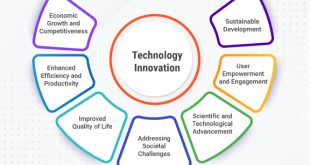Financial technology (fintech) has been shaking up the traditional finance industry in recent years. From mobile payments to digital currencies, fintech innovations are changing the way we manage our money. Here are some of the top fintech innovations you need to know about:
1. Mobile Payments
 Source: bing.com
Source: bing.comMobile payments have become increasingly popular over the years, allowing people to make transactions using their smartphones. With mobile payments, you can easily pay for goods and services without having to carry cash or cards around with you. Popular mobile payment apps include Apple Pay, Google Wallet, and PayPal.
2. Blockchain
 Source: bing.com
Source: bing.comBlockchain technology is essentially a decentralized digital ledger that records transactions in a secure and transparent way. It has the potential to revolutionize the financial industry by providing faster and more secure transactions. Bitcoin, the first and most well-known cryptocurrency, is based on blockchain technology.
3. Robo-Advisors
 Source: bing.com
Source: bing.comRobo-advisors are automated investment services that use algorithms to provide investment advice and manage portfolios. They offer lower fees and minimum investment requirements compared to traditional financial advisors, making it easier for people to invest their money.
4. Artificial Intelligence
 Source: bing.com
Source: bing.comArtificial intelligence (AI) has the potential to transform the financial industry by providing personalized financial services and improving fraud detection. AI-powered chatbots and virtual assistants are already being used by some financial institutions to provide customer support and financial advice.
5. Digital Currencies
 Source: bing.com
Source: bing.comDigital currencies, such as Bitcoin and Ethereum, are decentralized digital currencies that operate independently of a central bank. They offer faster and cheaper transactions compared to traditional currencies, making them an attractive option for cross-border payments.
6. Peer-to-Peer Lending
 Source: bing.com
Source: bing.comPeer-to-peer lending platforms connect borrowers with investors, cutting out traditional financial institutions. This allows borrowers to access loans at lower interest rates, while investors can earn higher returns compared to traditional savings accounts.
7. Open Banking
 Source: bing.com
Source: bing.comOpen banking refers to the practice of sharing financial data between different financial institutions through APIs. This allows consumers to have more control over their financial data and access to a wider range of financial products and services.
8. Cybersecurity
 Source: bing.com
Source: bing.comCybersecurity is becoming increasingly important in the financial industry, as more transactions are conducted online. Fintech innovations are helping to improve cybersecurity by providing better authentication methods and fraud detection systems.
9. Wearable Technology
 Source: bing.com
Source: bing.comWearable technology, such as smartwatches and fitness trackers, are being used by some financial institutions to provide personalized financial advice and services. For example, some banks allow customers to check their account balances and make transactions using their smartwatches.
10. Regtech
 Source: bing.com
Source: bing.comRegtech refers to the use of technology to improve regulatory compliance in the financial industry. This includes the use of AI and machine learning to detect and prevent financial crimes, such as money laundering and fraud.
These are just some of the top fintech innovations that are changing the way we think about money. As the fintech industry continues to evolve, we can expect even more exciting innovations in the future.
Related video of The Top Financial Technology Innovations You Need to Know About
DAFTAR ISI
 Majalah Pulsa Kumpulan Berita dan Informasi Seputar Teknologi
Majalah Pulsa Kumpulan Berita dan Informasi Seputar Teknologi


